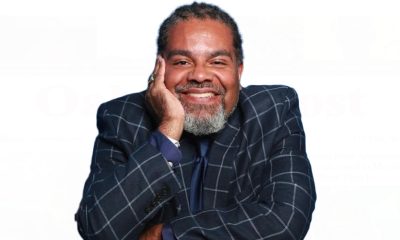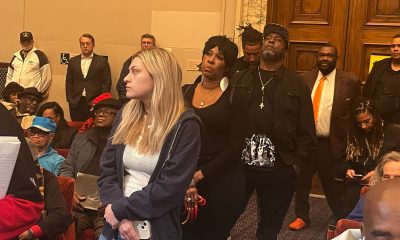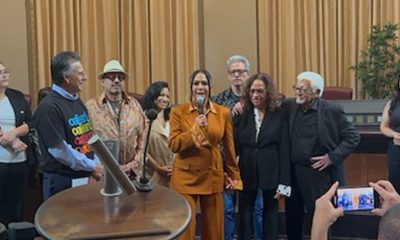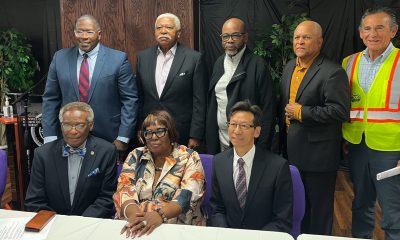Community
OLYMPIC GOLD MEDALIST AND COMCAST SURPRISE OAKLAND YOUTH WITH 1,000 FREE LAPTOPS AND FREE INTERNET AT HOME FOR A YEAR
Today, at a special event at Manzanita Recreation Center in Oakland, U.S. Olympic Gold Medalist swimmer Simone Manuel, Oakland Mayor Schaaf and the City of Oakland Parks & Recreation joined Comcast to announce plans to equip 20 Oakland community centers and parks and recreation facilities with free WiFi for the next three years.
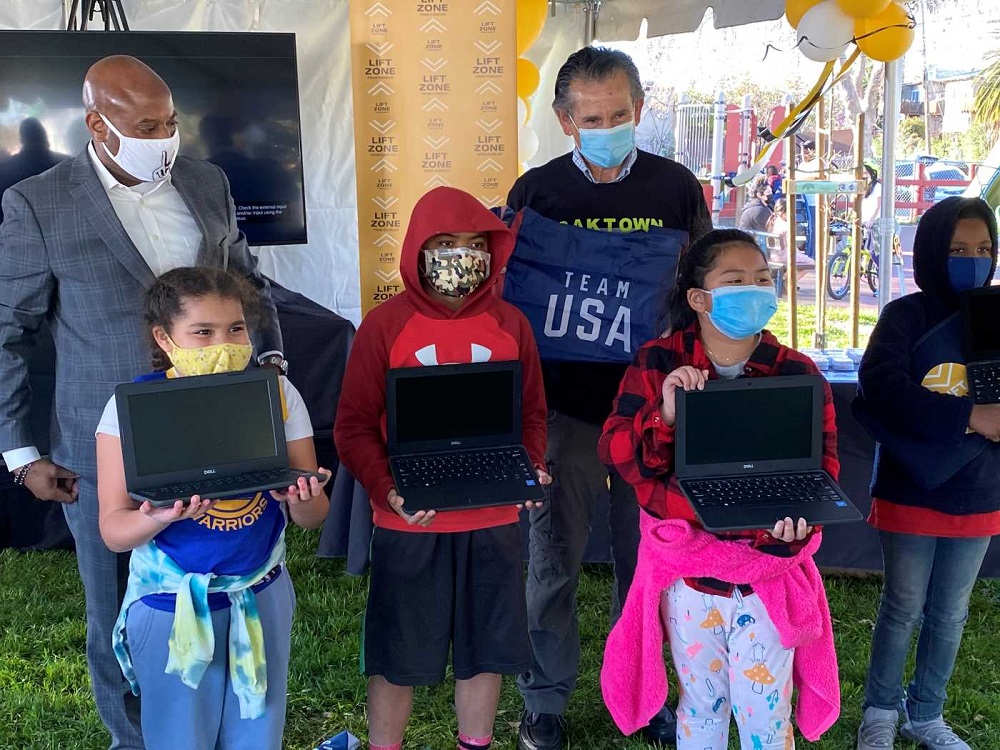
The ongoing health crisis has brought troubling consequences to communities of color. At the center of the most vulnerable groups are children who’ve been pushed into distance learning, in some cases without internet connectivity or the proper devices at home. For those with no internet access, education can be out of reach, adding to future inequities. This is why leaders across sectors are coming together to help close the digital divide.
Today, at a special event at Manzanita Recreation Center in Oakland, U.S. Olympic Gold Medalist swimmer Simone Manuel, Oakland Mayor Schaaf and the City of Oakland Parks & Recreation joined Comcast to announce plans to equip 20 Oakland community centers and parks and recreation facilities with free WiFi for the next three years.
“The lack of Internet access in low-income homes adds unique challenges to families that are trying to manage distance learning. I’m pleased to partner with Comcast to bring awareness to this important issue and help close the digital divide,” said Simone Manuel, the first African American female swimmer to win gold in an individual swimming event at the 2016 Rio Games. Manuel joined the event virtually to speak with Oakland students and answer their questions.
In addition to providing free WiFi at the various Lift Zone locations, Comcast contributed $100,000 to the City of Oakland Parks and Recreation Foundation and gave 1,000 students their own free laptop computer and free Internet at home for 12 months (to eligible families) through its Internet Essentials program.
“Parents who are essential workers or those who can’t work from home have been questioning how to handle distance learning for their children. That’s why we are grateful that Comcast has partnered with the City of Oakland to provide these crucial technology resources and stepped in to fill an important need in the community,” said Oakland’s Mayor Libby Schaaf.
“We’re thrilled to partner with the City of Oakland Parks and Recreation Foundation to install free WiFi and provide digital skills training to ensure students can stay connected with their schools during this challenging time,” said John Gauder, regional senior vice president, Comcast California.
As part of its ongoing commitment to help connect low-income families to the Internet so they can fully participate in educational opportunities and the digital economy, Comcast initiated a multiyear program to launch more than 1,000 WiFi-connected “Lift Zones” in community centers nationwide.
Lift Zones will be another step that adds to a cumulative effort to close the digital divide. Lift Zones will provide high-speed internet at Parks and Recreation Center.
Activism
Oakland Post: Week of April 10 – 16, 2024
The printed Weekly Edition of the Oakland Post: Week of April 10 – 16, 2024

To enlarge your view of this issue, use the slider, magnifying glass icon or full page icon in the lower right corner of the browser window. ![]()
Activism
Oakland Post: Week of April 3 – 6, 2024
The printed Weekly Edition of the Oakland Post: Week of April 3 – 6, 2024
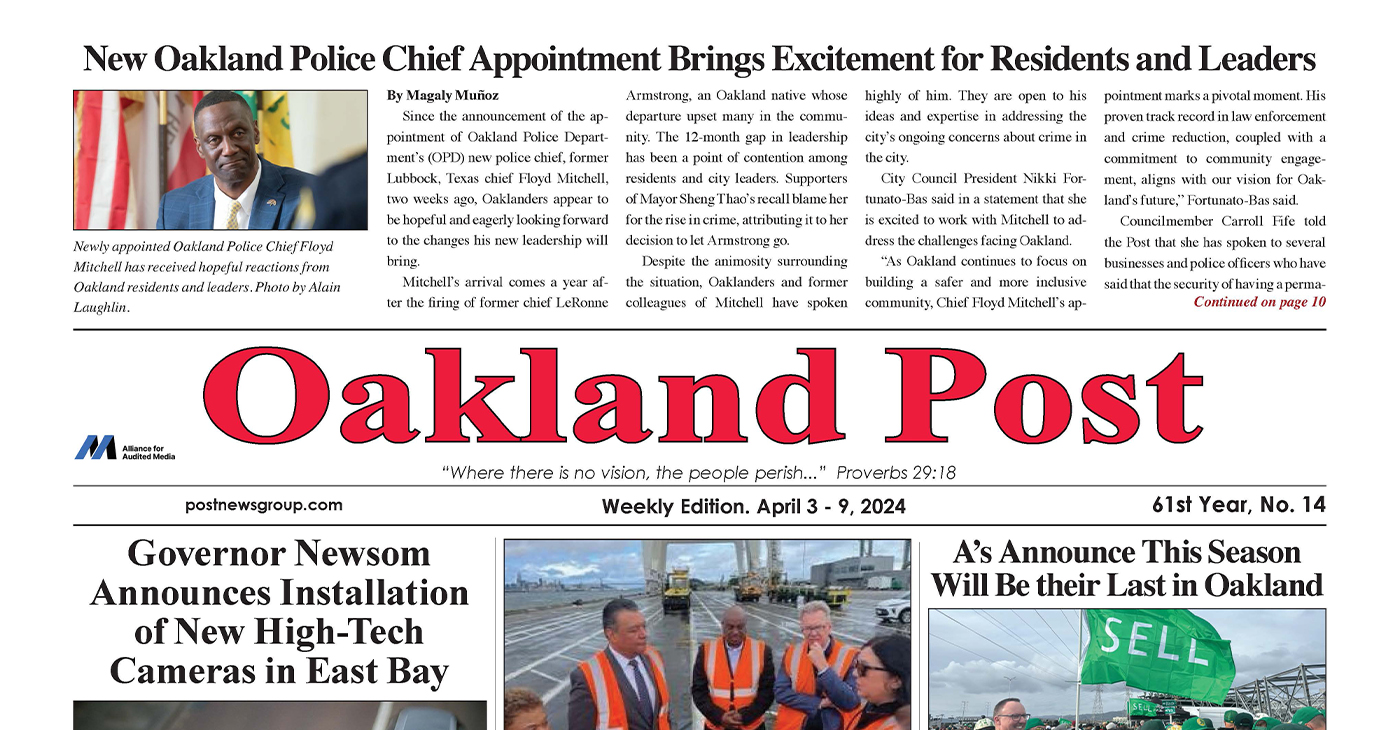
To enlarge your view of this issue, use the slider, magnifying glass icon or full page icon in the lower right corner of the browser window. ![]()
Activism
Oakland Post: Week of March 27 – April 2, 2024
The printed Weekly Edition of the Oakland Post: Week of March 27 – April 2, 2024
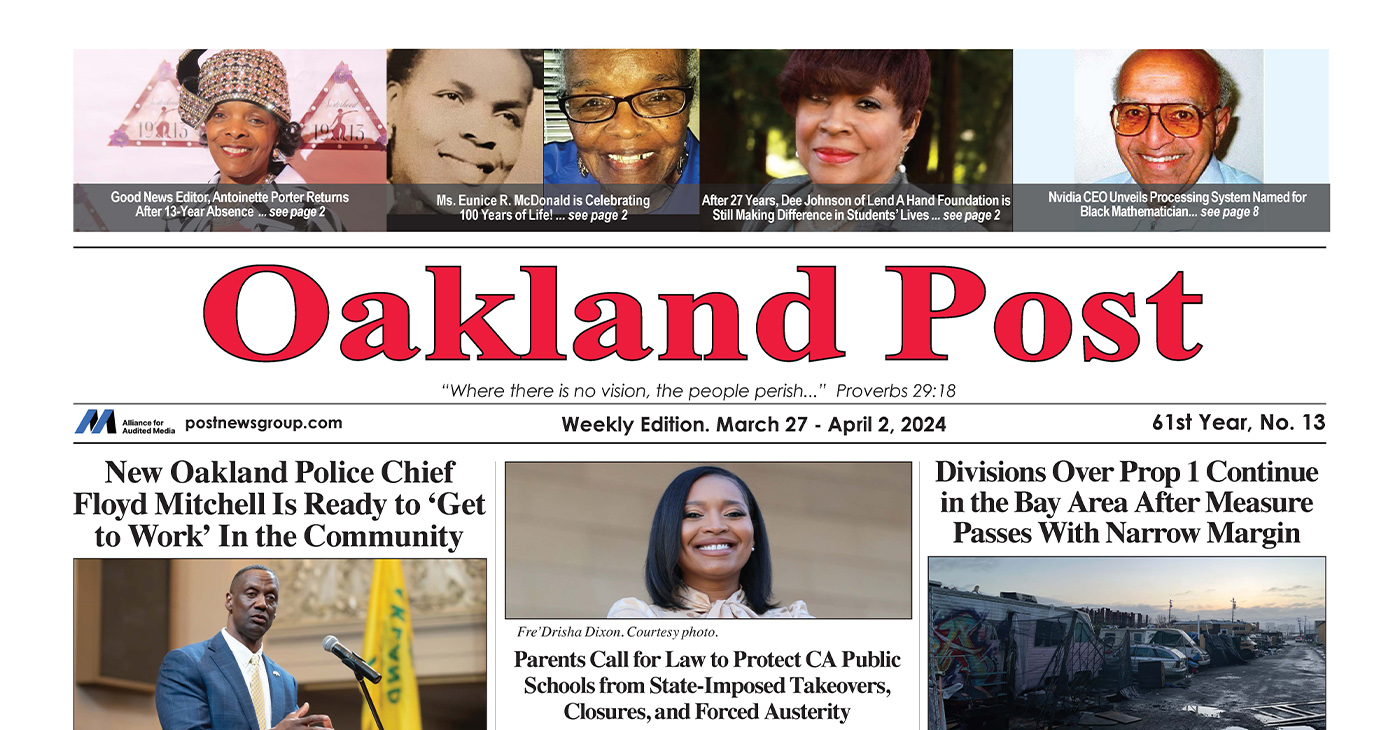
To enlarge your view of this issue, use the slider, magnifying glass icon or full page icon in the lower right corner of the browser window. ![]()
-

 Activism4 weeks ago
Activism4 weeks agoOakland Post: Week of March 20 – 26, 2024
-

 #NNPA BlackPress3 weeks ago
#NNPA BlackPress3 weeks agoMayor, City Council President React to May 31 Closing of Birmingham-Southern College
-

 #NNPA BlackPress3 weeks ago
#NNPA BlackPress3 weeks agoCOMMENTARY: Lady Day and The Lights!
-

 #NNPA BlackPress3 weeks ago
#NNPA BlackPress3 weeks agoFrom Raids to Revelations: The Dark Turn in Sean ‘Diddy’ Combs’ Saga
-

 #NNPA BlackPress3 weeks ago
#NNPA BlackPress3 weeks agoCOMMENTARY: D.C. Crime Bill Fails to Address Root Causes of Violence and Incarceration
-

 #NNPA BlackPress3 weeks ago
#NNPA BlackPress3 weeks agoBaltimore Key Bridge Catastrophe: A City’s Heartbreak and a Nation’s Alarm
-

 #NNPA BlackPress3 weeks ago
#NNPA BlackPress3 weeks agoBaltimore’s Key Bridge Struck by Ship, Collapses into Water
-

 Activism3 weeks ago
Activism3 weeks agoOakland Post: Week of March 27 – April 2, 2024

